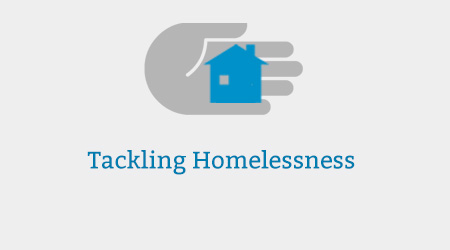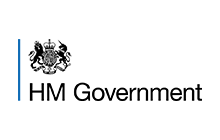About the Tackling Homelessness programme
This programme offers two elearning sessions to support the health and care workforce to understand the health impacts of homelessness, identify different forms of homelessness, gain practical steps to making a referral and highlights ways your organisation can implement the duty effectively.
Session 1 – All our Health Homelessness session: This session provides an overview of the topic of homelessness to equip health and care professionals with the evidence, data and resources they need to take action on homelessness in your professional practice.
Session 2 – Duty to Refer for Frontline NHS staff session: This session describes the Homelessness Reduction Act 2017 duty to refer and provides practical steps to identify people experiencing homelessness. This includes information on how to obtain consent to make a referral to a local housing authority and the steps front-line staff and managers can take to implement the duty to refer.
More information
Homelessness is a growing public health and social issue. In 2018 almost 600 people died while homeless in England and Wales (Office for National Statistics, 2018). The reported average age of death for a homeless man is 44 and for women it is 42 (Office for National Statistics, 2018). These facts highlight the alarming health inequity and premature mortality homeless people experience. Although rough sleeping remains the most visible form of homelessness, insecure housing settings are a significant form of homelessness affecting approximately 170,000 people (Crisis, 2018; Fitzpatrick et al., 2018).
People who experience homelessness often experience poorer health and wellbeing compared to the general population. Additionally, this group faces barriers in accessing health services, which worsens their health outcomes and deepens the health inequality.
On 3 October 2018, the Homelessness Reduction Act 2017 introduced a new legal duty on specified public services to prevent and relieve homelessness. All NHS emergency departments, urgent treatment centres and in-patient wards have a “Duty to Refer” people they consider may be homeless or threatened with homelessness to a local housing authority. The workforce in these services need to be equipped with the right skills and knowledge to identify and refer people experiencing or threatened with homelessness.
Meet the team

Susan Harrison
Author and Independent health and care consultant
Jane Cook
Health & Homelessness Adviser, Rough Sleepers Initiative (MHCLG), Ministry of Housing, Communities and Local Government
Clair Guy
Project Manager, HEE elearning for healthcare
Alice Denham
Learning Designer, HEE elearning for healthcare
Lourena Mendes
Project Manager, Population Health and Prevention, HEE
Claire Cheminade
Programme Manager, Population Health and Prevention, HEE
Caitlin Winton
Project Support Officer, Population Health and Prevention, HEE
Rebecca Green
Programme Manager, Homelessness and Rough Sleeping, PHE
Marie-Elaine Frith
Policy Manager, Vulnerable Groups and Inequalities, Children, Families and Communities, DHSC
Acknowledgements
Special thanks for their support in developing this eLearning also goes to the following organisations :
Pathway, Homeless Link, Doctors of the World, Crisis, St Mungos, Shelter, Queen’s Nursing Institute
How to access
In order to access the Tackling Homelessness programme, you will need an elfh account. If you do not have one, then you can register by selecting the Register button below.
To view the Tackling Homelessness programme, select the View button below. If you already have an account with elfh, you will also be able to login and enrol on the programme from the View button.
Not an NHS organisation?
If you are not an NHS health or care organisation and therefore do not qualify for free access elfh Hub, you may be able to access the service by creating an OpenAthens account.
To check whether or not you qualify for free access via OpenAthens, you can view the eligibility criteria and register on the ‘OpenAthens’ portal.
Registering large numbers of users
If you are a HR, IT or Practice Manager and would like to register and enrol large numbers of staff within your organisation for access onto the Tackling Homelessness programme, please contact elfh directly.
Organisations wishing to use their own LMS
For HR departments wanting to know more about gaining access to courses using an existing Learning Management System please contact elfh directly to express interest.
More information
Please select the following link for more information on how to use the elfh Hub.





